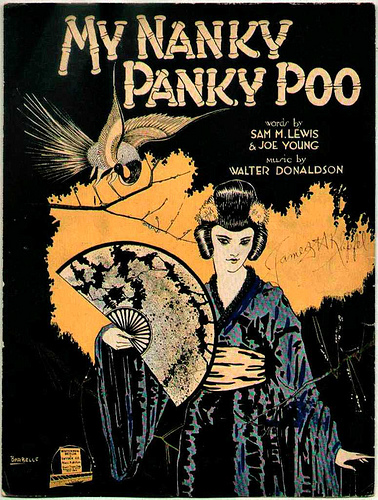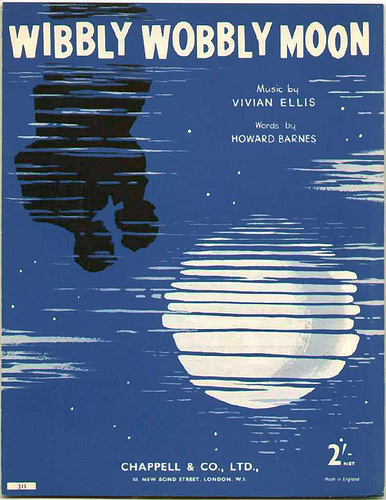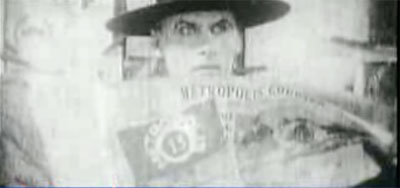I’ve seen The Hurt Locker and Green Zone within a few days of one another. Purely as a piece of cinema, The Hurt Locker is probably the better film, but politically it is nowhere, and indeed it suffers from the same syndrome as many Hollywood Vietnam pictures – they are all about Americans and how they feel, and the poor natives appear as mere ciphers. Not so Green Zone, where the Iraqis appear as persons in their own right, with interests, feelings, grudges, agendas. Green Zone is, in some ways, a pretty crude film, and there’s a striking disconnect between the late-Bourneish style and the anti-war substance. Still, if that gets a broader audience remembering and thinking about what happened, and what went wrong, and why, that’s no bad thing. In the credits at the end, I was surprised to see “Based on _Imperial Life in the Emerald City_ by Rajiv Chandrasekaran”. I’m not sure what the necessary and sufficient conditions for the “based on” relation are, but this is not that distant from saying that the latest Bond movie is “based on” the official history of MI5 (although to be fair, the account of the pathologies of the CPA is recognizably, though distortedly from _Emerald City_). One thing that both book and movie reminded me of is this: that the cheerleaders for the war (be they neocon or “decent left”) didn’t just applaud the invasion. The awfulness of Saddam was such that being pro-war in 2003 was wrong but perhaps forgiveable and — as some of the barely repentant cheerleaders keep reminding us — was sometimes motivated by moral motives. They also applauded or excused the really bad post-invasion fuck-ups: the failure to control looting, deBaathification, the dissolution of the Iraqi army, etc. So thanks to Rajiv Chandrasekaran, Paul Greengrass and Matt Damon for keeping a light shining on that.
From the category archives:
Cinema
I saw Michael Haneke’s new film, The White Ribbon (Das weiße Band) last night. A beautiful and disturbing evocation of childhood and evil in a small German village on the eve of World War 1. It really cements Haneke’s reputation as one of the greatest film-makers working today. The central thread of the film concerns a series of vindictive and increasingly sadistic attacks, first on the village doctor, then on small children, starting in the summer of 1913. Haneke doesn’t do “closure” (hooray for that!) , so, as with Hidden, we can never be quite sure what happened and who was responsible for what, though at the end of the film there is a very strong suggestion as to the identity of the culprits. Though such events provide the narrative thread, the real substance of the film is its exploration of the repressive family relationships that pervade the village: most prominently, the pastor’s rule over his children, but also the doctor’s vicious treatment of his mistress, and the cold of the Baron’s marriage.
Heimat is bound to be a point of comparison, though, of course, the action in Edgar Reitz’s work beings with a return to a village in the immediate aftermath of Germany’s defeat in 1918. Haneke’s characters are, with a few exceptions, much less sympathetically portrayed that Reitz’s.
Watching the film, which despite its length, was sufficiently engrossing to pass quickly, I was led to reflect on how close we are in time to the events depicted and how impossibly distant we are from them (two world wars and massive technological and social change stand between us and those villages of feudal deference and agrarian drudgery). A year ago seems nothing, but, iterate 96 times or so, and little remains in common. Still, the real-life counterparts of the smallest of Haneke’s child characters might still be living today.
One small semi-technical note. I believe that the film was shot in digital colour and then converted to black and white. The monochrome imagery is often superb, but a definite digital flavour remained in the tonality: a very small flaw in a terrific movie.
I watched Paolo Sorrentino’s quite extraordinary film Il Divo last night. It is remarkable in so many ways, but especially, as a portrait of evil in the form for Giulo Andreotti (as depicted by Toni Servillo) and also, in terms of the most marvelous cinematography. In a recent post I attracted hostility from some by doubting the West’s commitment to individual rights. No doubt I overgeneralized a little, but post-war Italy would be a part of any case for the prosecution. Andreotti as portrayed in the film, is prepared to go to almost any lengths, to inflict evil in pursuit of what he takes to be the good, to deal with the Mafia, to sacrifice his colleagues (I’d say his friends, but it isn’t clear that he had any). I wonder if it isn’t possible that Italy between some date in the 1970s and the fall of the Berlin Wall, wasn’t the European state where a person was most likely to be the victim of political murder? (Actually, I’m guessing that Romania might take that prize.) Not to be missed.
What happened is part of the public record, so there’s no reason to be unclear or misinformed about the nature of the crime and subsequent events. This includes the victim’s stated wish — repeatedly, later — that legal action not be continued, but also the actual facts of the crime, which was a one hundred percent real rape of a drugged 13 year-old. So, now. Who’s going to cover themselves in glory?
Thus far, I think Robert Harris is winning with “I am shocked that any man of 76, whether distinguished or not, should have been treated in such a fashion” and “One of the reasons I’m absolutely shocked and stunned by his arrest is that we have worked together extensively in Switzerland, where he has a home … “. (And he dresses so well! And The Pianist is such an affecting film!) Close behind is French Minister of Culture Frederic Mitterrand, who “strongly regrets that a new ordeal is being inflicted on someone who has already experienced so many of them”. Like Neddy at EOAW I don’t believe there’s anything more to these defenses than “He’s one of us”. But it’s early days yet. For instance, coming up fast now on the outside is Anne Applebaum of the Washington Post, who says the arrest is “outrageous” in part because,
Polanski, who panicked and fled the U.S. during that trial, has been pursued by this case for 30 years, during which time he has never returned to America, has never returned to the United Kingdom, has avoided many other countries and has never been convicted of anything else. He did commit a crime, but he has paid for the crime in many, many ways: In notoriety, in lawyers’ fees, in professional stigma. He could not return to Los Angeles to receive his recent Oscar. He cannot visit Hollywood to direct or cast a film.
See, you or I might think that not going back to the U.S. or U.K. is an action Polanski took in order to make sure that, having raped a minor and fled the country, he would not be rearrested. But you or I would be wrong. In fact these are punishments that Polanski has suffered. But tiens, it was a long time ago. Puritanical Americans simply do not have the enlightened attitude toward wine at the dinner table, quaaludes, and child rape that the Europeans do. In Ireland, for instance, there are quite a number of seventy-odd year old men (and even older) who spent their youth ministering to children and raping them — some of their victims have been able to forgive them, and many want never to speak of those events again, so why all the legal fuss? Perhaps that’s a bad example. Ireland isn’t really a European country.
In any event, I look forward to more detailed explanations of who the Real Victim is here, and more fine-grained elaboration of the criteria — other than “marvelous dinner guest” — for being issued a Get Out of Child Rape Free card.
“Cory Doctorow in the Guardian”:http://www.guardian.co.uk/technology/2009/sep/15/cory-doctorow-3d-movies:
bq. Somewhere in the past year or so, it seems as though every studio exec has decided to greenlight one or more blockbuster in 3D, using a pretty impressive technology that employs polarised glasses to give a reasonably convincing illusion of depth. … And the 3D is … nice. … But I’m sceptical. … Up is a tremendous movie; it made me laugh and cry, and was intended to be seen in 3D … Nothing was obviously missing from the 2D experience that made me feel like the 3D was a must-have.
bq. And of course, that’s true of all 3D movies. Movies, after all, rely on the aftermarket of satellite, broadcast and cable licenses, of home DVD releases and releases to airline entertainment systems and hotel room video-on-demand services – none of which are in 3D. If the movie couldn’t be properly enjoyed in boring old 2D, the economics of filmmaking would collapse … he economics just don’t support it: a truly 3D movie would be one where the 3D was so integral to the storytelling and the visuals and the experience that seeing it in 2D would be like seeing a giant-robots-throwing-buildings-at-each-other blockbuster as a flipbook while a hyperactive eight-year-old supplied the sound effects by shouting “BANG!” and “CRASH!” in your ear. Such a film would be expensive to produce and market and could never hope to recoup.
You know what Obama’s problem is? He watches movies in the White House. I can’t believe he had the supreme arrogance to not break with the long tradition of Presidents watching movies in the White House. Jerk.
Hey, here’s a fun Flickr set. Old-timey sheet music covers.


It needs a comment box.
I was in touch with Astra Taylor about her documentary Žižek! quite a long time ago, or so it seems. She has a new film called Examined Life consisting of what might be called philosopher-in-the-street interviews. The talking heads include (to reshuffle the list alphabetically) Kwarne Anthony Appiah, Judith Butler, Michael Hardt, Martha Nussbaum, Avital Ronell, Peter Singer, Sunaura Taylor, Cornel West, and Slavoj Žižek.
Here’s the trailer:
I haven’t seen the film yet — it’s only showing in NYC now, it seems — but would welcome a screener DVD. It’s not like I’m going to bootleg it out of the trunk of my car or anything. I don’t even have a car, if that makes the folks at Zeitgeist Films feel any better.
When I first started going out with my partner Pauline, in the early 1980s, I had a somewhat dismal opinion of Liverpool. She wanted to show me how great the city could be, so she insisted on taking me to the Palm House in Sefton Park. I rather vividly remember how distressed she was to find that the beatiful structure of her childhood was derelict and vandalized. My father, whose mother came from the city often recalls a visit just after the war, to a city that was incomparably exciting. He remembered the overhead railway, the buses, the underground – a place alive.
That Liverpool is the subject of Terence Davies’s wonderful poetic treatment, “Of Time and the City”:http://www.imdb.com/title/tt1232790/ (“Official site”:http://www.oftimeandthecity.com/index.php ). He takes the city of empire, of shipbuilding and docks, of sport, of children playing on working-class streets — the city of his childhood — and traces its decline and collapse through the 1970s and 1980s. At the same time, he indicates, through music — especially his use of Mahler’s 2nd — that there is life yet and the possibility of return. It is hard to give a flavour of the combination of image, music, poetry and personal recollection that Davies conveys, but he tells us of a place that is badly damaged but still has immense weight and grandeur (aptly evoked in his shots both of industrial landscape and of great Victorian buildings like St George’s Hall). Of course it is a film that will mean most to those from the city, perhaps especially the legion of exiled scousers. But it said a lot to me, with a more episodic connection, and even those who only know it from a distance will love Davies’s work. Get to see it if you possibly can.
Obituary “here”:http://www.nytimes.com/aponline/movies/AP-Obit-Newman.html?_r=1&oref=slogin/.
Man, what if McCain gets elected? (Also, I listened to a Jonah Goldberg bloggingheads thing and it was terrible.) Oh, but I a had great idea for a superhero duo. There’s a terrible accident – a tornado rips through a trailer park – and this is, for some strange reason, the origin story for Double-wide (he’s a bruiser type) and Airstream (his sexy, flying partner). They fight crime in a small town in Georgia. Who should their arch-enemy be?
Right. The Dark Knight. My Valve colleague, Bill B., points me to David Bordwell grousing about superhero films, and generally saying smart things. Oddly enough, given my love of superheroes, I agree almost right down the line. Oh, I enjoyed Dark Knight well enough. But the ending was dumb, the Harvey Dent subplot handled clumsily. The only reason it made sense to me that he was Two-Face was that he was clearly named Harvey Dent and had half his face melted off. Other than that, I didn’t see the resemblance. Ledger’s Joker was, as all sensitive souls agree, vastly entertaining. I would have watched him read the phonebook. Well, for a few minutes anyway. But, while I doubt anyone else would have been better for the role, I don’t actually think it was such a tremendously impressive outing. it isn’t that hard to prance around in clown make-up, barking mad. Insane clowns could be the new Rain Man prestige role. Oh, it takes physical presence and a certain bone structure and face-to-lip ratio. I’m glad someone finally decided to put Frank Miller’s joker up there on the screen. And, of course, the Dark Knight is Miller’s, too.
Everyone knows that. But certain things follow which, it seems to me, have not been noted. First, the praise of Nolan has been a bit off-target. [click to continue…]
My friend Doug Wolk just won an Eisner for best comics-related book for Reading Comics. And, I might add, we’ve been hosting a little book event in his honor over at the Valve the last couple weeks. Kip Manley just write a very nice little essay, for example.
In other news, somehow I missed the news a few weeks ago that long-lost footage from Fritz Lang’s Metropolis had turned up in Buenos Aires. That’s almost as good as when they found a nice print of Dreier’s The Passion of Joan of Arc (1928) in a Norwegian insane asylum, eh?
Although the new material is in a terrible condition, according to the first appraisals by the German film historians, including Rainer Rother, the director of the Deutsche Kinemathek Museum in Berlin, the newly discovered scenes give a surprising insight into the characters’ motivation. They finally give “Metropolis” a coherent story-telling rhythm, whose absence was often criticized. For example, characters who were practically extras in the shorter version, such as the spy Schmale or Josaphat, Freder’s friend, actually had significant supporting roles and the original dramaturgical concept, which before could only be reconstructed using textual sources and photographs, is now apparent on film for the first time since 1927.
I don’t think we even knew the spy Schmale’s name. He’s always just been ‘the thin man’, right? And he’s onscreen for all of 3 seconds, looking very tall and sinister. I’m looking forward to seeing a bit more. Here’s a YouTube video that includes tidbits of the new stuff, starting with Schmale, I presume, peeking over a Metropolis newspaper:
And, in other German typeface-related news, we are finally going to get to see the lost Yoshiwara district scene.
On a friend’s recommendation, I watched the excellent “Now, Voyager”:http://www.imdb.com/title/tt0035140/ the other night. A very fine performance from Bette Davis, who makes the transition from dumpy and downtrodden to shining society beauty brilliantly. But enough of the plot spoilers. Especially in the opening scenes, everyone sounds upper-class _English_. Perhaps not as cut-glass as “Brief Encounter”:http://www.imdb.com/title/tt0037558/ , but close. Maybe some of the characters are supposed to be English (Dr Jacquith, played by the English Claude Rains might be), but others, such as the matriarch Mrs Henry Windle Vale (played by the English Gladys Cooper) are definitely supposed to be American (upper-class Bostonian). And Bette Davis herself, is, obviously, an American actor playing an American character (but still sounding _English_). So, did Bostonian aristocrats in the 1940s actually speak with English accents? Or were the dramatic conventions such that English actors (Rains, Cooper) didn’t have to change their voices?
(I’m recalling that Kieran wrote about accent change over time “here”:https://crookedtimber.org/2007/10/19/how-the-edwardians-spoke/ , and that Harry wrote about Brits playing Americans “here”:https://crookedtimber.org/2008/05/27/hugh-lauries-accent/ . In the year 2008 I know at least one posh Bostonian and she definitely sounds American, though only as much as Dr Niles Crane.)
This should be Kieran’s thread really, since he came up with the concept. But, having made that acknowledgment, I’ll jump in. His first nomination is the truly awful Chasing Amy: I watched 15 minutes before deciding that there was a perfectly good toilet to clean in the other room. henry (not the famous one) proposes You’ve Got Mail, which sounds plausible. But my nomination is more serious: The House of Sand and Fog. I rarely dislike a movie enough to warn people against it, but this is one of the worst, and most unpleasant, movies I’ve watched. (I see that someone has vandalised the wikipedia entry on this one, saying, hilariously, that it and some of its actors were nominated for awards!)
The premise is implausible. A woman has her house taken from her, by mistake, for failure to pay a business tax that she did not genuinely owe. She had 8 months to correct the mistake and did nothing. Now, the only possible explanation in the circumstances is that she was severely depressed. Whatever plausibility that explanation has is undermined by the fact that, on screen, the actress has no sign at all of being, or ever having been, depressed. She seems bratty, to be sure, but not ill. Now, an exiled Iranian general purchases the house at a steal at an auction from the County. He is, unfortunately, played by Ben Kingsley, who seems to be the only actor in the movie who can act, thus unwittingly preventing it from being hilarious (up to the point at which it turns gratuitously nasty). He is also, understandably given his own circumstances, unwilling to give up the house and the bounty that it represents, so a battle of wills ensues, in which Jennifer Connelly is assisted by the most wooden actor I’ve ever seen in a big movie (he makes Arnold, on a bad day, look like Olivier by comparison — Dolph Lundgren territory), a rogue cop who leaves his happy family for a depressed alcoholic (Connelly) – that part of the story seeming plausible only because Connelly is manifestly not a depressed alcoholic, but looks healthy, happy, and well-made up every time she appears onscreen.
Why did I watch to the end? Well, the box promised a surprising ending, and the only morally acceptable ending seemed to me to be one in which the general kept the house and Jennifer Connelly and her beau descended into the pits of daytime TV. Below the fold is a short spoiler that will save you from wasting your time:
Here’s one of the few bits of parenting advice I offer my students: Do not allow your child to see Monty Python’s Life of Brian until they have seen Spartacus.
Other nominations of films that must not be watched in the wrong order?

